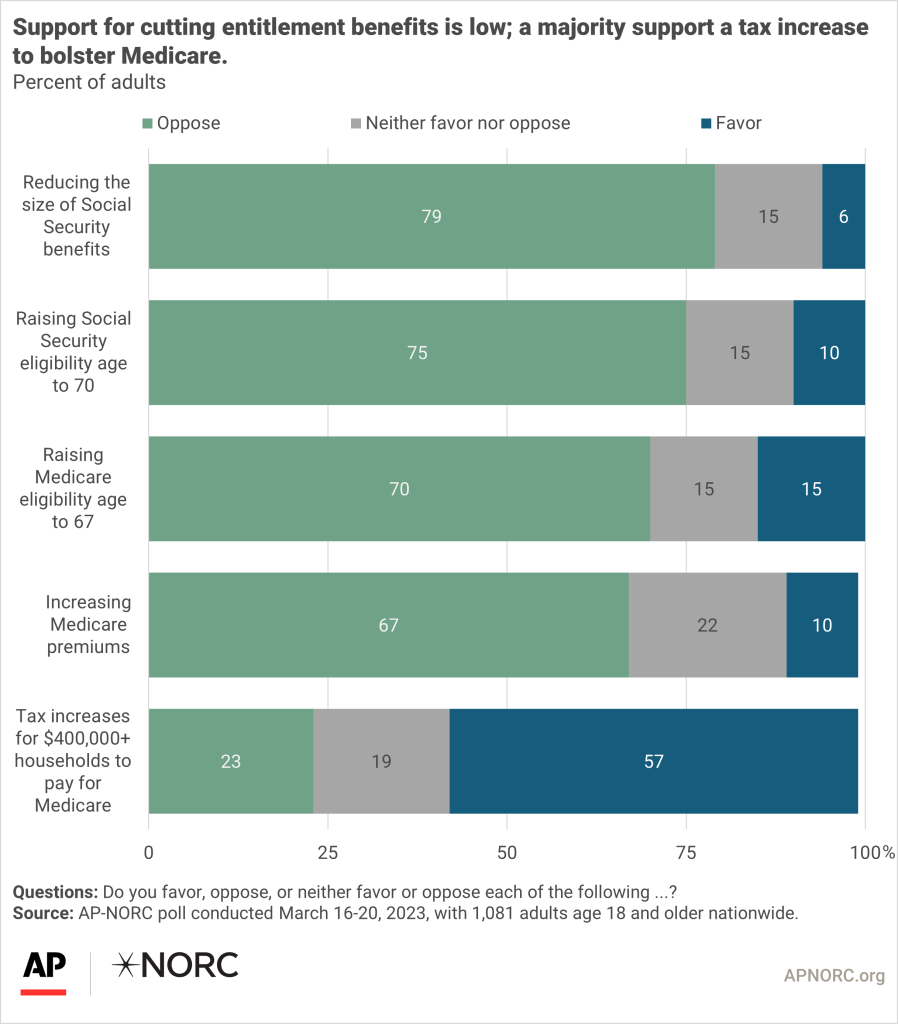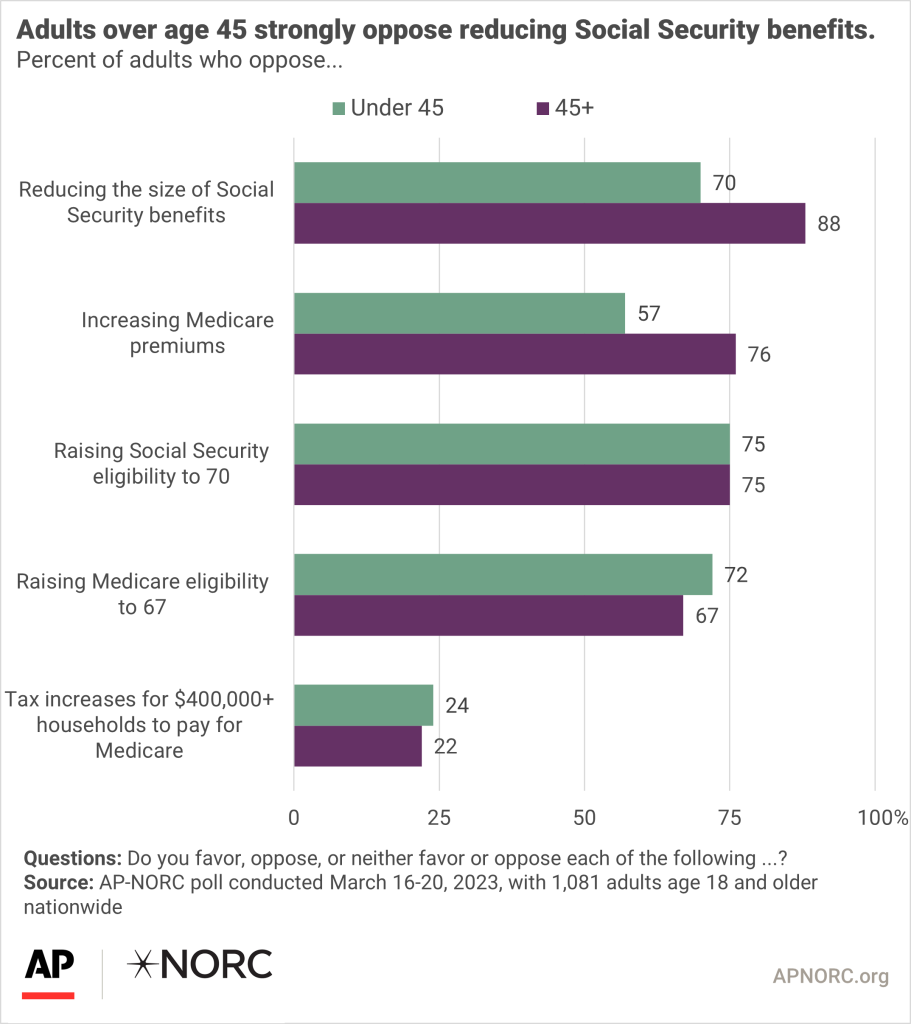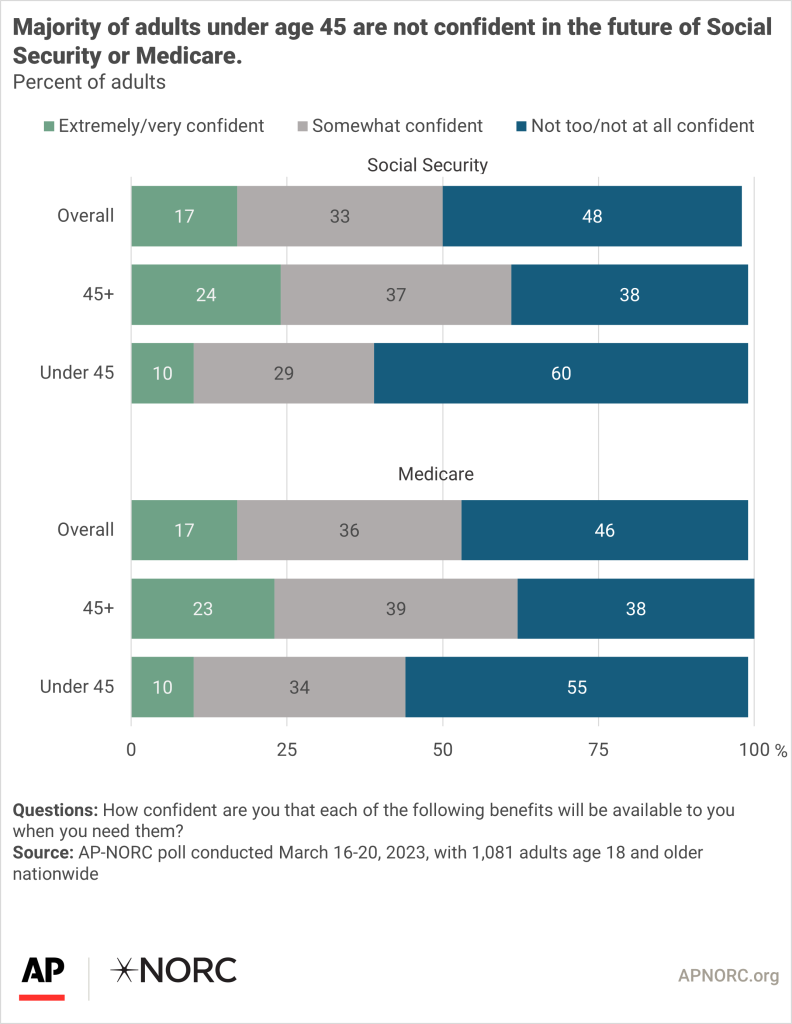
April 7, 2023
Public opposition to stripping away Social Security and Medicare benefits is high, even as policymakers grapple with long-term funding for these entitlement programs. Just 6% of adults favor reducing the size of Social Security benefits while 79% oppose.
Raising the age of Social Security eligibility by three years to 70 is also unpopular, as is raising the age of Medicare eligibility by two years to 67 and increasing the cost of premiums paid by those enrolled in Medicare.
A majority of the public supports increasing taxes on households earning more than $400,000 to pay for Medicare.

There are some generational differences on how to keep these programs solvent. Older adults – those most likely to be currently receiving benefits or soon to be receiving benefits – are more likely to be opposed to changing the current benefit structure. Eighty-eight percent of adults over the age of 45 oppose cutting Social Security benefits compared to 70% of those under 45. And 76% of older adults oppose increasing Medicare premiums compared to 57% of adults under 45.

Confidence in Social Security and Medicare is low, with only 17% of the public extremely or very confident that Social Security or Medicare will be there for them when they need it. And only 10% of adults under 45 have much confidence they will receive Social Security or Medicare benefits when the time comes.

The nationwide poll was conducted March 16-20, 2023 using the AmeriSpeak® Panel, the probability-based panel of NORC at the University of Chicago. Online and telephone interviews using landlines and cell phones were conducted with 1, 081 adults. The margin of sampling error is +/- 4.0 percentage points.
- Suggested citation: AP-NORC Center for Public Affairs Research. (April 2023). “Younger generations are not confident that Social Security or Medicare will be there for them” https://apnorc.org/projects/ayounger-generations-are-not-confident-that-social-security-or-medicare-will-be-there-for-them-a/







